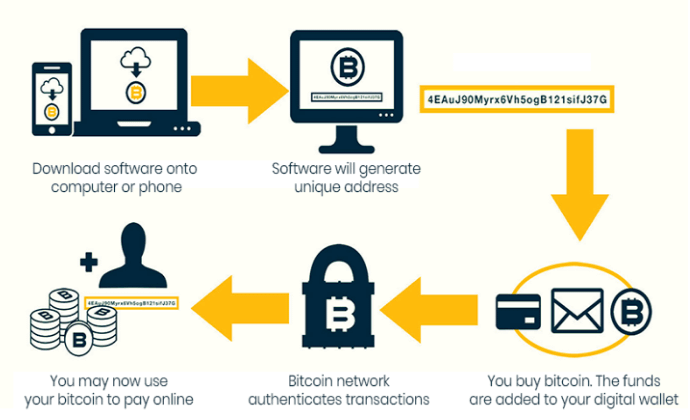What is Bitcoin?
Bitcoin is a decentralized digital currency that can be sent electronically from one user to another without the need for a middleman such as a bank or government. Transactions are recorded on a public ledger called the blockchain. Bitcoin was created in 2009 by an unknown individual or group of people using the pseudonym Satoshi Nakamoto.
Types of bitcoin
There is only one type of bitcoin, often referred to as “bitcoin” or “BTC” for short. However, there are other digital currencies that are similar to bitcoin, such as Bitcoin Cash (BCH), Bitcoin Gold (BTG), and Bitcoin SV (BSV). These are known as “altcoins,” or alternative coins, and they are based on the same underlying technology as bitcoin (i.e. blockchain) but have different specifications, such as different block sizes or mining algorithms.
How bitcoin works?
Bitcoin is a decentralized digital currency that uses cryptography to secure and verify transactions as well as to control the creation of new units of a particular cryptocurrency.

Transactions are recorded on a public digital ledger called a blockchain, which allows for transparency and prevents fraud. Bitcoin operates on a peer-to-peer network, allowing for direct transfers without the need for a central authority. Users can purchase bitcoins through exchanges, and can store them in a digital wallet. The value of bitcoins is determined by supply and demand on the open market.
Advantages of bitcoin
Some advantages of using bitcoin include:
Decentralization: Bitcoin is decentralized and operates on a peer-to-peer network, meaning that it is not controlled by any government or institution. This allows for greater autonomy and freedom when making transactions.
Anonymity: Bitcoin transactions are recorded on a public ledger, but the identity of the users behind these transactions is not revealed. This allows for greater privacy when making transactions.
Global access: Bitcoin can be used anywhere in the world, as long as the person you are sending to or receiving from also has a bitcoin wallet.
Low transaction fees: Bitcoin transactions typically have lower fees compared to traditional financial transactions like wire transfers or credit card purchases.
Immutable: Bitcoin transactions are recorded in a blockchain that is resistant to tampering and modification, providing an immutable record of transactions.
Borderless: Bitcoin is not restricted by borders, and can be sent to anyone in the world easily, regardless of their physical location.
No inflation: Bitcoin has a fixed supply, meaning it cannot be subject to inflation, which can protect users’ savings from losing value over time.
It is worth noting that some of the above-mentioned advantages have been challenged by experts and researchers, and some of them are still being debated.
Disadvantages of bitcoin
Some potential disadvantages of using bitcoin include:
Volatility: The value of bitcoin can be highly volatile and can fluctuate dramatically in a short period of time. This makes it a risky investment and not a suitable option for individuals who are looking for stability.
Lack of regulation: Bitcoin is not regulated by any government or institution, which can make it vulnerable to fraud and illegal activities.
Security risks: Bitcoin exchanges and wallets have been subject to hacking attacks in the past, resulting in the loss of user funds. Additionally, if a user loses their private key, they lose access to their bitcoins permanently.
Limited acceptance: While more and more businesses are starting to accept bitcoin as a form of payment, it is still not widely accepted and can be difficult to use in everyday transactions.
Complexity: The technical aspects of using bitcoin, such as setting up a wallet and understanding how to send and receive payments, can be difficult for non-technical users.
Scalability: Bitcoin’s blockchain technology, is still facing scalability issues, which means that it can be slow and expensive to process a large number of transactions.
Environmental Impact: Bitcoin mining is known for its high energy consumption, which can have a negative impact on the environment if not addressed.
It is worth noting that some of the above-mentioned disadvantages are being addressed by the community and the industry and some of them have solutions or alternatives been proposed to overcome them.
